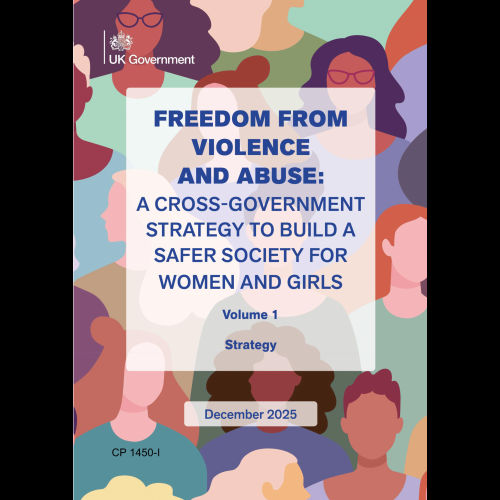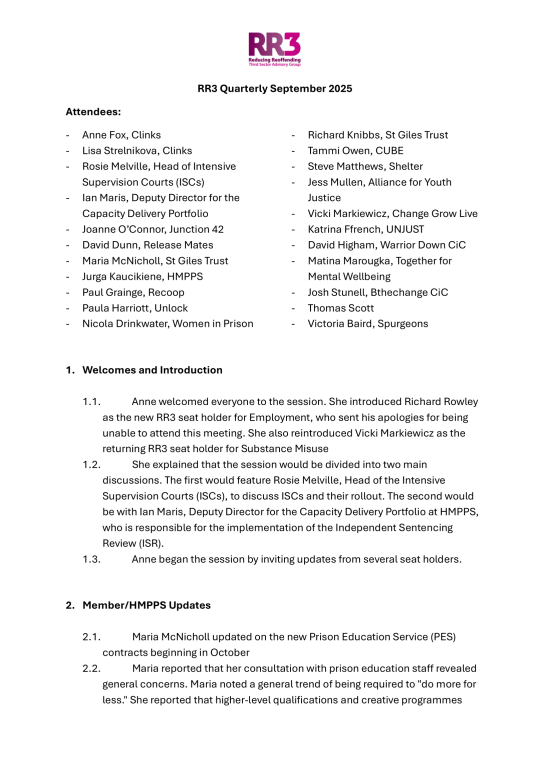David Lammy, the Labour MP for Tottenham, has been tasked by the Prime Minister to explore whether the Criminal Justice System is biased against people from black, Asian and minority ethnic (BAME) communities. Today he launched two reports, one is a review of ethnic disproportionality across the system and the other is a review of those being sentenced in the Crown Court in 2015. Both have been published by Ministry of Justice Analytical Services. He has also written an open letter to the Prime Minister to present the interim findings of his review. Clinks submitted evidence to the review and we supported the Young Review to submit a response.
What the Lammy Review's interim report has found
Evidence is always useful, and this is what the Lammy Review's interim reports have provided us with. The reports show that police are arresting BAME people at an alarming rate, our courts are sending more people from BAME communities to prison, it is treating them more harshly in our prisons and when they are released probation services (and others) are less successful at stopping them from re-offending. The findings are stark and should be a wakeup call to the justice system.
Young black men are three times more likely to be arrested than white men, and mixed ethnic men, and both black and mixed ethnic women are twice as likely to be arrested than their white counterparts. This will draw them into a system that is biased against them from start to finish. The arrest rate widens the net and drags people into a system that they shouldn't be in, and if they were white British then they probably wouldn't be.
We already knew that black people are four times more likely to be in prison than white people. The number of Muslim prisoners has almost doubled in the last decade. When we look at sentencing it becomes clear why. BAME people are more likely to be convicted at magistrates courts, more likely to have their case sent to Crown Court, and are more likely to be sent to prison from Crown Court - this is 81% more likely for Chinese people.
Within the prison system the behaviour of BAME people is heavily scrutinised, making BAME men 50% more likely to have adjudications brought against them. Black men also have less opportunity to access Release on Temporary License from category C prisons, something that we know aids rehabilitation and resettlement.
The re-offending rate for people from BAME communities is worse than white British people. Young black males are 15% more likely to re-offend and black adult men about 7% more likely. This points to a failure in our approach to rehabilitation and resettlement.
These statistics paint a depressing picture and should be a call to action. However, they are not the first or only insight into this issue. We have been in this situation for a long time and countless organisations have been tackling this issue: The Zahid Mubarek Trust's work on tackling racism in our prisons, the National Body for Black Prisoners Support Group, Prison Reform Trust campaigning on the issues, the Race for Justice campaign, and most recently the Young Review breathed new life into the debate with some clear recommendations for tackling the issue of disproportionality for black and/or Muslim young adults in the justice system. All of these have highlighted the same issues for a long time, with a wealth of worrying statistics and warnings about increasing problems in the system. We need to knuckle down and work up solutions, however difficult that may be. This requires a response to the problem that puts the voluntary sector at the heart of any solution.
So what is the Lammy Review going to do?
The review has set out five next steps before the full report launches next spring.
- Explore the better use of data (and where it is misused) to scrutinise the system
- Investigate other forms of oversight and accountability to provide checks and balances that tackle racial bias
- Focus on how best to build trust in our justice system among minority communities
- Look more closely at a number of vulnerable groups, including children in care, and individuals with learning difficulties or those with mental health issues
- Consider the better involvement of local communities, faith groups, the voluntary sector, family members and people with direct experience of the justice system.
For Clinks members, and especially organisations that support people from BAME communities, David Lammy's third and fifth step offers some hope for better engagement. Over recent years many small BAME-led organisations have struggled to find a place for their services in the contracting and commissioning climate. This, combined with a significant decline in grant funding, has meant that specialist and expert organisations, most of which are very small, have either struggled to operate or have closed. This includes organisations that support specific people such as young black men, Gypsy, Traveller or Roma communities, the Chinese community, and new migrant communities. A new approach is needed to support these organisations to work with police, in our courts, in prisons and in the community with probation services.
Clinks welcomes the Lammy Review's work and we hope that its ambition to tackle the issues and find workable solutions will be realised. We have offered support to the Lammy Review team and will continue to do so. We will also keep on supporting the Young Review to implement its recommendations through the impressive members of the Independent Advisory Group. We know from our consultation with the sector that people, especially those with direct experience of the system, need to see real action.
For too long the situation has gone unchecked with little central or local strategy to tackle this issue. That simply has to change.
What's new
Blogs
Violence Against Women and Girls (VAWG) Strategy Blog
Publications
Latest on X
The role is for a leader from an organisation focused on racially minoritised people, with expertise in service delivery, policy, advocacy, or related areas in criminal justice. Racial disparities are present at every CJS stage. This role ensures these voices are central in shaping policy to help address and eradicate them. Apply by Mon 18 Nov, 10am. More info: https://www.clinks.org/voluntary-community-sector/vacancies/15566 #CriminalJustice #RR3 #RacialEquity

